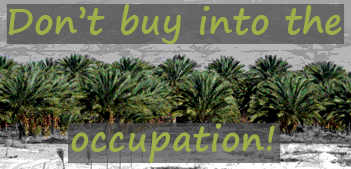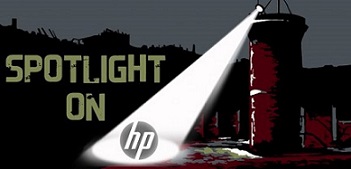Boycott / Divestment / Sanctions (BDS)
What is it?
A Boycott is an invitation not to buy something for ethical reasons. It’s a nonviolent tactic to increase the pressure for social change. Boycotts have been used to get companies to change their practices (Nestle, Nike), or they can be used against a country (France when it resumed nuclear testing, South Africa to end Apartheid).
In 2005, 171 Palestinian civil society groups launched the Boycott, Divestment and Sanctions movement – asking the world to boycott Israeli goods, divest from its companies, and for countries to impose sanctions.
The call has been taken up by many different groups in different ways. There have been intense debates in church synods and forums about full boycotts and divestment. Many Trade Unions support BDS, as have some Governments (particularly in Europe and in South Africa).
PIEN’s BDS policy
PIEN launched our Boycott, Divestment and Sanctions (BDS) policy and campaign in 2019 at St James’ Anglican church, Sydney, with Professor Emeritus Stuart Rees OAM and Assoc. Professor Dr. Peter Slezak as invited speakers.
PIEN has heard the calls of Palestinians and Israelis who are actively working for justice and peace, particularly the call from the Palestinian BDS National Committee. As such PIEN is compelled to respond by adopting BDS as a non-violent action against companies and other entities which, directly or indirectly, support Israel’s occupation of Palestinian land and its blockade of the Gaza Strip, in violation of international law.
BDS was successfully used against supporters of Apartheid in South Africa. Israel, especially having adopted a Basic Law proclaiming Israel as The Nation State of the Jewish People, along with its military rule of the Palestinian territories, fits the description of an apartheid state, as defined by the International Criminal Court.
BDS & Theology
To further your understanding of Boycott Divestment and Sanctions (BDS) Global Kairos for Justice have recently launched this excellent BDS Toolkit website, providing important information and education about why such actions are needed to end Israel’s human rights violations against Palestine.
The toolkit provides theological foundations for BDS; answers frequently asked questions (FAQs) and addresses challenges and legal issues. There are useful videos plus stories from around the world from faith-based groups who have shared their BDS experiences with Global Kairos for Justice, including from PIEN.
Find out more:
- For PIEN’s Boycott, Divestment and Sanctions policy document click here
- For FAQ’s click here
- Read an article by Stuart Rees ‘Churches support for the Boycott, Divestment, Sanctions Movement’


Join the campaign against settlement goods: Don’t buy into the occupation!
Israeli settlements are exclusively Jewish communities that have been established in Occupied Palestine. Their existence and ongoing expansion confiscate large areas and are widely accepted by the international community as being against international law. Additionally their presence leads to a wide array of problems for Palestinians: road-closures; loss of farming livelihoods; checkpoints; exposure to settler violence; military control by Israel of daily life, and many more. To buy goods from these settlements is therefore not only undermining international law but implies support for the Israeli military occupation of Palestine. The devastating effects of these settlements on daily Palestinian life cannot be overstated.
PIEN are inviting Australian Christians and churches to boycott the products of HP
We chose to focus on HP due to their direct link to the illegal occupation through equipping the Israeli military with the technology infrastructure used to maintain the systems of apartheid and oppression.
In the last few years since we joined the global HP campaign there have been some notable wins, showing the effectiveness of the BDS movement.
It appears HP still have some existing contracts with the Israeli military, so we need to keep the pressure up. Who Profits tracks companies who profit from the Israeli occupation. Read the material they have on HP.
